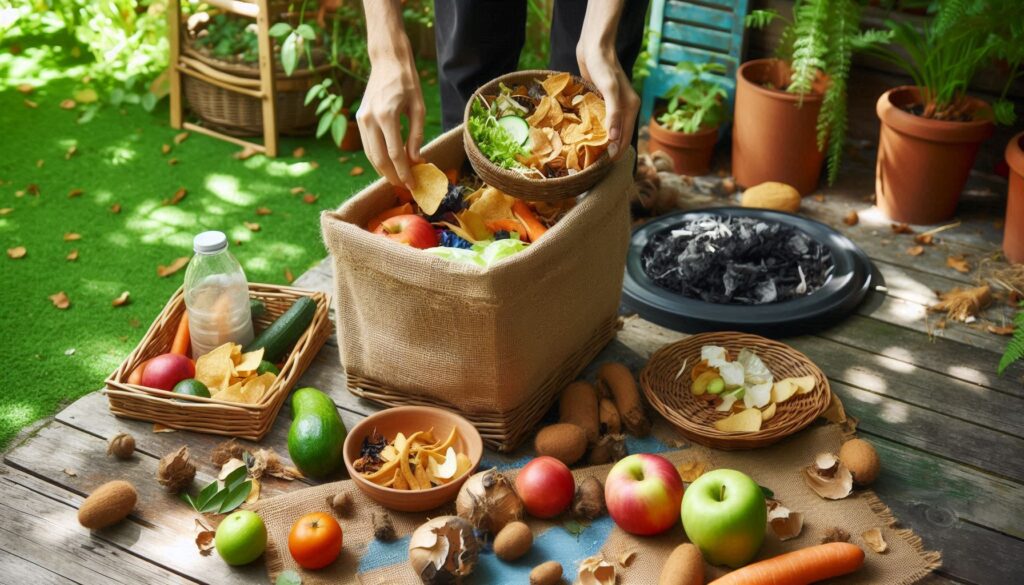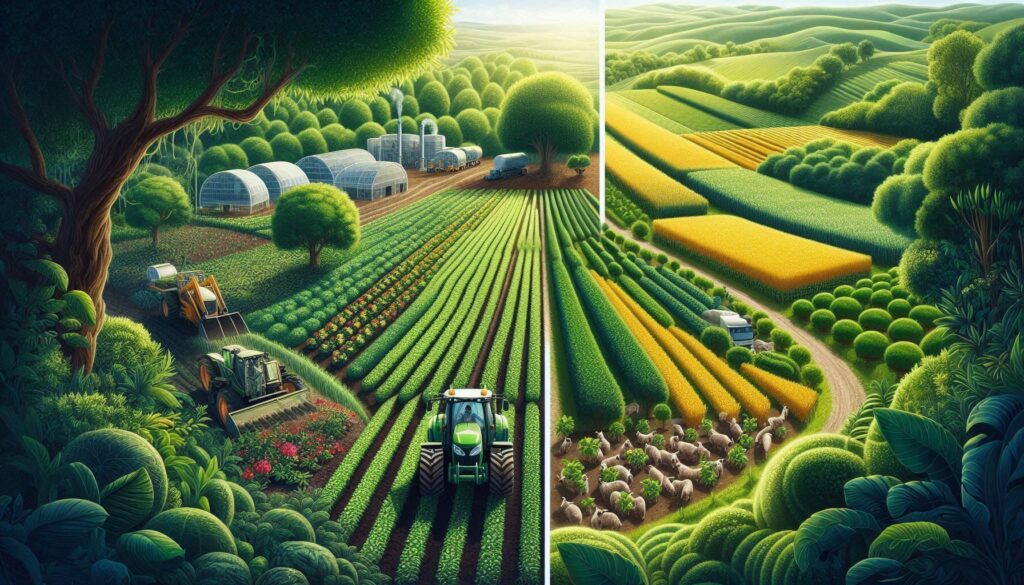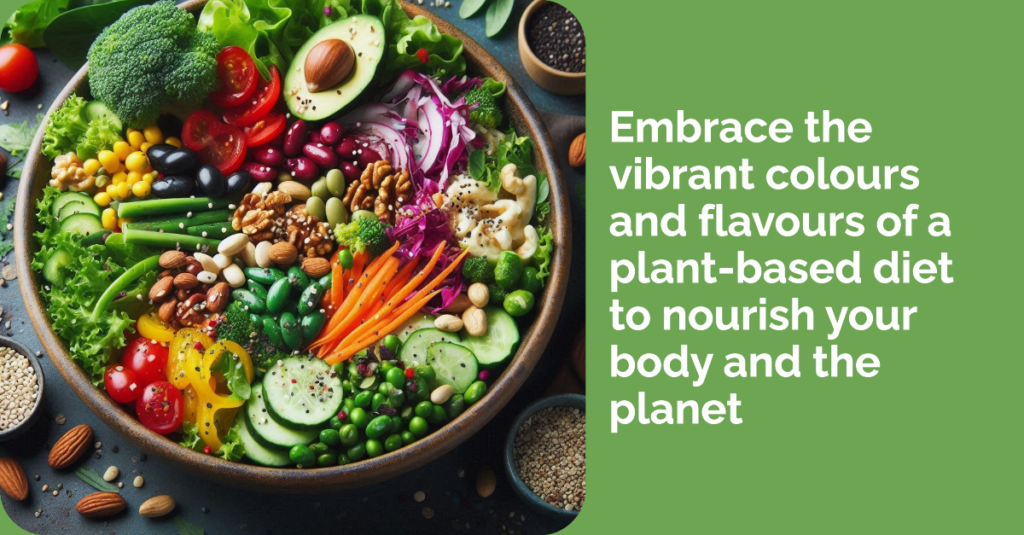
Article 27 of our Series “Nourishing Your Whole Self: The SaziBox Health Guide to Holistic Nutrition”
The health of our planet is intertwined with the food choices we make every day. Sustainable food choices not only nourish our bodies but also contribute to a healthier environment. From greenhouse gas emissions and water pollution to soil degradation and deforestation, food production significantly impacts our planet’s well-being.
As conscious consumers, we have the power to make a difference. By adopting sustainable food choices, we can reduce our ecological footprint and ensure a healthier planet for future generations. Let’s explore how you can make a positive impact through your diet, promoting both personal and planetary health.
1. Local and Seasonal Eating: A Recipe for Sustainability

Making sustainable food choices starts with embracing local and seasonal eating. By prioritizing food grown closer to home and in its natural season, you can significantly reduce the environmental impact of your diet.
Why Local Food Is Better for the Environment
- Reduced Carbon Footprint: Transporting food over long distances consumes significant amounts of fossil fuels, leading to greenhouse gas emissions. Local food travels shorter distances, resulting in a smaller carbon footprint.
- Supports Local Economy: Buying local food helps sustain local farmers and strengthens your community.
- Fresher and More Nutritious: Seasonal produce is picked at its peak ripeness, ensuring optimal flavour and nutrient content.
The Benefits of Seasonal Produce
- Taste and Nutrition: Seasonal fruits and vegetables are bursting with flavour and nutrients, as they’re grown in their ideal conditions.
- Reduced Environmental Impact: Out-of-season produce often requires energy-intensive greenhouse cultivation or long-distance transportation, increasing its carbon footprint.
- Variety and Excitement: Eating seasonally encourages you to explore different foods throughout the year, adding diversity and excitement to your diet.
Incorporating More Local and Seasonal Foods into Your Diet
- Shop at Farmer’s Markets: Connect with local farmers and discover the freshest seasonal offerings.
- Join a CSA: Receive a weekly share of locally grown, seasonal produce directly from a farm.
- Grow Your Food: Even a small herb garden or a few tomato plants on your balcony can make a difference.
- Learn What’s in Season: Familiarize yourself with the seasonal produce calendar in your region.
- Preserve Food: Learn techniques like canning, freezing, or pickling to enjoy seasonal produce year-round.
By making sustainable food decisions like opting for local and seasonal ingredients, you can enjoy the bounty of your local harvest and support a healthier planet.
2. Reducing Food Waste: A Crucial Step Towards Sustainability

Food waste is a significant global issue, contributing to greenhouse gas emissions and wasting valuable resources like water and energy. Making sustainable food choices also means minimizing food waste.
The Environmental Impact of Food Waste:
- Landfill Methane Emissions: Food waste decomposing in landfills produces methane, a greenhouse gas far more potent than carbon dioxide.
- Wasted Resources: Wasted food represents a waste of water, energy, and other resources used in its production, transportation, and storage.
Practical Strategies for Reducing Food Waste:
- Plan Your Meals: Create a weekly meal plan and shopping list to avoid overbuying and impulse purchases.
- Proper Food Storage: Store fruits and vegetables correctly to extend their shelf life. Learn about optimal storage conditions for different produce.
- Composting: Compost food scraps to create nutrient-rich soil for your garden or donate to a community composting program.
- Repurpose Leftovers: Get creative with leftovers! Turn them into new dishes or freeze them for later.
- Understand Expiration Dates: “Best by” and “sell by” dates are often conservative estimates. Use your senses to determine if food is still good to eat.
By adopting these sustainable habits, you can reduce food waste and help conserve our planet’s precious resources.
3. Organic vs. Conventional: Navigating the Choices

When it comes to sustainable food choices, the decision between organic and conventional produce often arises. Both approaches have their merits and drawbacks regarding environmental impact.
- Organic Farming:
- Environmental Benefits: Promotes biodiversity, reduces chemical pollution, and enhances soil health.
- Challenges: Can be more expensive and may have lower yields.
- Conventional Farming:
- Benefits: Often more affordable and can produce higher yields.
- Criticisms: This relies heavily on synthetic pesticides and fertilizers, which can harm ecosystems and human health.
When and Why to Choose Organic:
- The “Dirty Dozen”: Prioritize buying organic produce on the Environmental Working Group’s (EWG) “Dirty Dozen” list, which typically has the highest pesticide residues.
- Support Sustainable Practices: Choosing organic supports farmers who prioritize soil health and biodiversity.
- Reduce Pesticide Exposure: Organic produce generally has lower levels of pesticide residues.
Remember:
- Sustainable food choices are a personal journey. It’s about finding a balance that works for you, your budget, and your values.
- Even small changes, like reducing food waste or incorporating more local produce, can make a positive impact.
Read more
Your Plate, Your Planet
The choices we make about food have a ripple effect on our health and the health of our planet. By embracing sustainable food choices, we can nourish our bodies while protecting the environment.
Start small, be consistent, and celebrate your progress. Every step you take towards a more sustainable diet matters.
- Reflect on your current food habits. Are there any areas where you can make more sustainable choices?
- Share your commitment to sustainability with friends and family.
- Stay tuned for more articles in our “Nourishing Your Whole Self” series!
Together, let’s create a healthier, more sustainable food system for ourselves and future generations.
References:
- The Environmental Working Group (EWG) – https://www.ewg.org/
- Sustainable Food Trust – https://sustainablefoodtrust.org/
- Food and Agriculture Organization of the United Nations (FAO) – https://www.undp.org/




